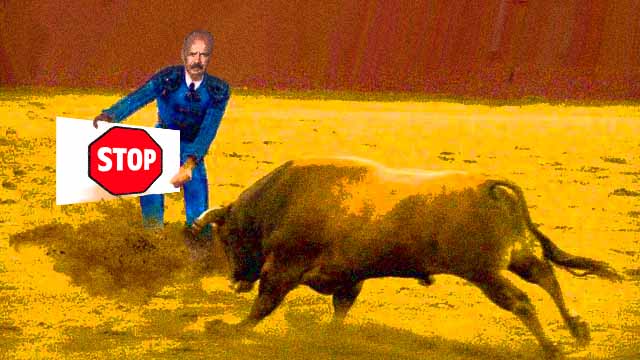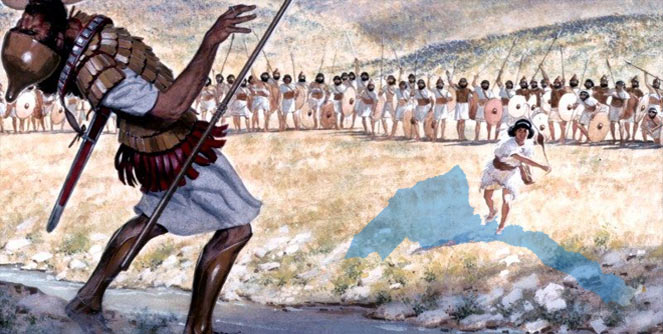Positive Engagement
 The dictator and his different faces (PFDJ, YPFDJ and his media outlets including meskerem.net), have, for years now, and for obvious reasons, waged and still continue to wage defaming campaigns against the opposition with the intention of undermining its resolve and at the same time defeat its self confidence. Also, in parallel, a similar defamation campaign has been conducted by the opposition forces themselves against each other.
The dictator and his different faces (PFDJ, YPFDJ and his media outlets including meskerem.net), have, for years now, and for obvious reasons, waged and still continue to wage defaming campaigns against the opposition with the intention of undermining its resolve and at the same time defeat its self confidence. Also, in parallel, a similar defamation campaign has been conducted by the opposition forces themselves against each other.
Irrespective of the motives of the campaigners, and until recently, the end result was the same: A confused opposition with no agenda of its own and lagging behind the political developments; afact that helped the dictator to be the sole player in shaping the political map of the country.
So, when responsible Eritreans, both individuals and media outlets, call upon the opposition groups to “cease campaigning against each other and deliver”, it is, I believe, not only to bring about a conductive political environment through positive engagement, but also to help the opposition forces measure their successes based on their own merits and virtues and not on the failures of others. I am saying this, because, it seems to me, most of the current political organizations and parties in the opposition, if not all, campaign against each other, directly or by using pen names, as a way of making life (in the context of political practices), forgetting, that it is only through conducting rational policies that they can regain their credibility and win the support of the people at the same time.
With a spirit of positive engagement, I wrote an article titled: “Towards The National Conference”, (28-02-2011, awate.com)–I am grateful for the feedbacks I got. Some of the comments questioned my stand on the conflict within the EDA.
I avoided the subject in the above mentioned article and, even now, I choose not to write about it because I want to remain committed to the badly needed positive engagement policy I am advocating for.
However and without violating my code of conduct, I share the following:
- First, let us take a quick look at the, then, prevailing political environment that was seen as a contributing factor:An irresponsible and an unaccountable cyber media hosting a multitude of pen name writers whose inputs exacerbated the mistrust among rival political organizations (the Ali Salim versus Semere Tesfai phenomenon is a typical example). In this regard, I would like to express my respect to the awate website for courageously acknowledging this weakness and pioneering as a responsible media.
- The general weakness inherent in the opposition camp (no exceptions here), specially, its inferior position in establishing relations with neighboring countries (The relations with both the Sudan and Ethiopia have been subject to the bilateral relations of each of these two counties with the dictatorial regime in Eritrea). As we know, the opposition was forced to move to Ethiopia and operate from there following the Ethiopian-Eritrean war and the betterment of the Eritrean-Sudanese relations.
- The active engagement of Ethiopia in the form of hosting the national conference, providing financial assistance and our limited knowledge of the degree and limit of its engagement.
- The anxiety-provoking reaction on the issues of inequity, which was clearly presented by the respected Ahmed Raji in his “The lost Rainbow” series of articles, specially, the failure to acknowledge the truth while claiming to be a promoter of justice and equality, opens the door to questioning the truthfulness of the political position adapted by the concerned parties.
- The absence of past democratic practices and the challenges faced in trying to establish consensus.
All the above factors combined should, I believe, constitute the bases of any objective assessment of the conflicting positions.
With that in mind :
1. I am aware of the arguments and the counter accusations of the two sides. Each argument, though with a varying degree, is a result of an interpretation of the intentions of the other side based on its own fears. In other words, and in black and white:
The fears of the boycotters were, and still are, I presume, that the EDA member organizations, who call for a decentralized form of governance, ranging from self-reliance to any kind of federal arrangement, might gain an upper hand in a conference hosted by the “federal” republic of Ethiopia. And,
The fear of the attendees (the 10 EDA member organizations) was and still is, I assume, that the EPDP’s unwillingness to engage in discussions/agreements regarding the form of governance while advocating centralism as a future form of governance coupled with the sensitivity with which the EPDP deals with issues of diversity strengthens the fear that the EPDP wants to dominate others, and given the opportunity it may try to dictate its own version of diversity.
Unity in diversity:
Unity in diversity is a well known slogan that every one is raising now a days, but, what it truly means is far from obvious. Diversity, here, is not as what we would like it to be, but it is the reflection of the state of the organization of our society. And since organizations or parties are the outcome of social, cultural and economical relations, we have to admit, if we are striving to achieve democracy and justice, that we should not try to mould diversity (by putting conditions, such as, the PFDJ’s Sherifo proposal: “the inclusion of at least 4 linguistic groups in establishing a party”) or pretend diversity (by decorating a hegemonic system: the inclusion of individuals of different religion or different ethnicity in a predominantly mono-ethnic or mono-religious organization.) Diversity is not to be created, but managed.
2. The conflict is, among other things, a result of the democratic practices within the EDA, specially decision passing techniques (consensus or majority vote.) Consensus, is rather the failure to achieve it, that made the alliance less effective, and at times resulted in deadlocks that led to frustrations, more failures, and counter accusations. While majority vote demands the acceptance of decisions passed by the majority, seen in light of the composition of the EDA, it proved to be problematic as well.
Finally, I would like to conclude by stating that democratic practices can be developed and refined through an interaction within the diverse entity and not out side of it.
Thanks for taking your time.
Your comments are welcome: omerabubaker@hotmail.com




Awate Forum